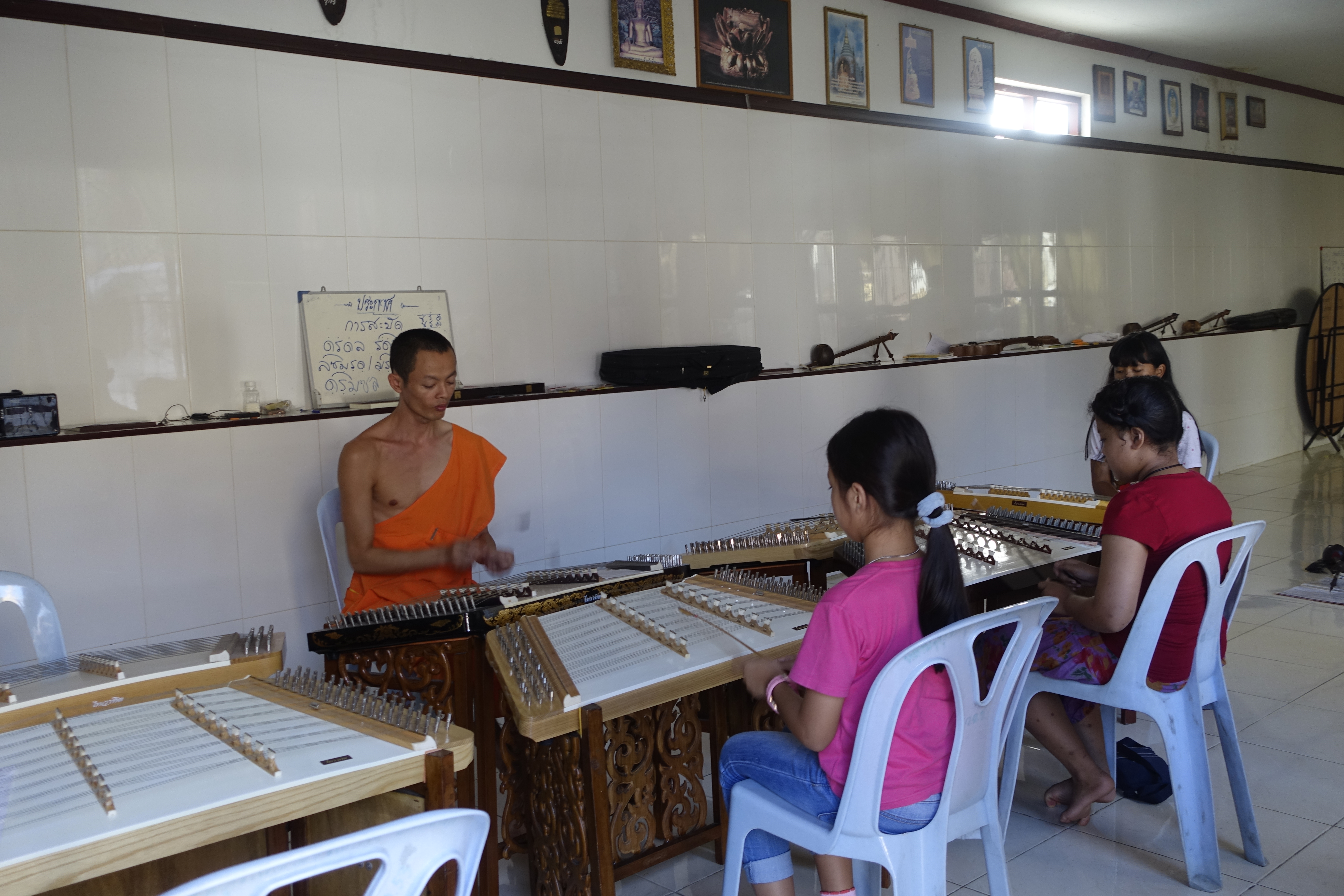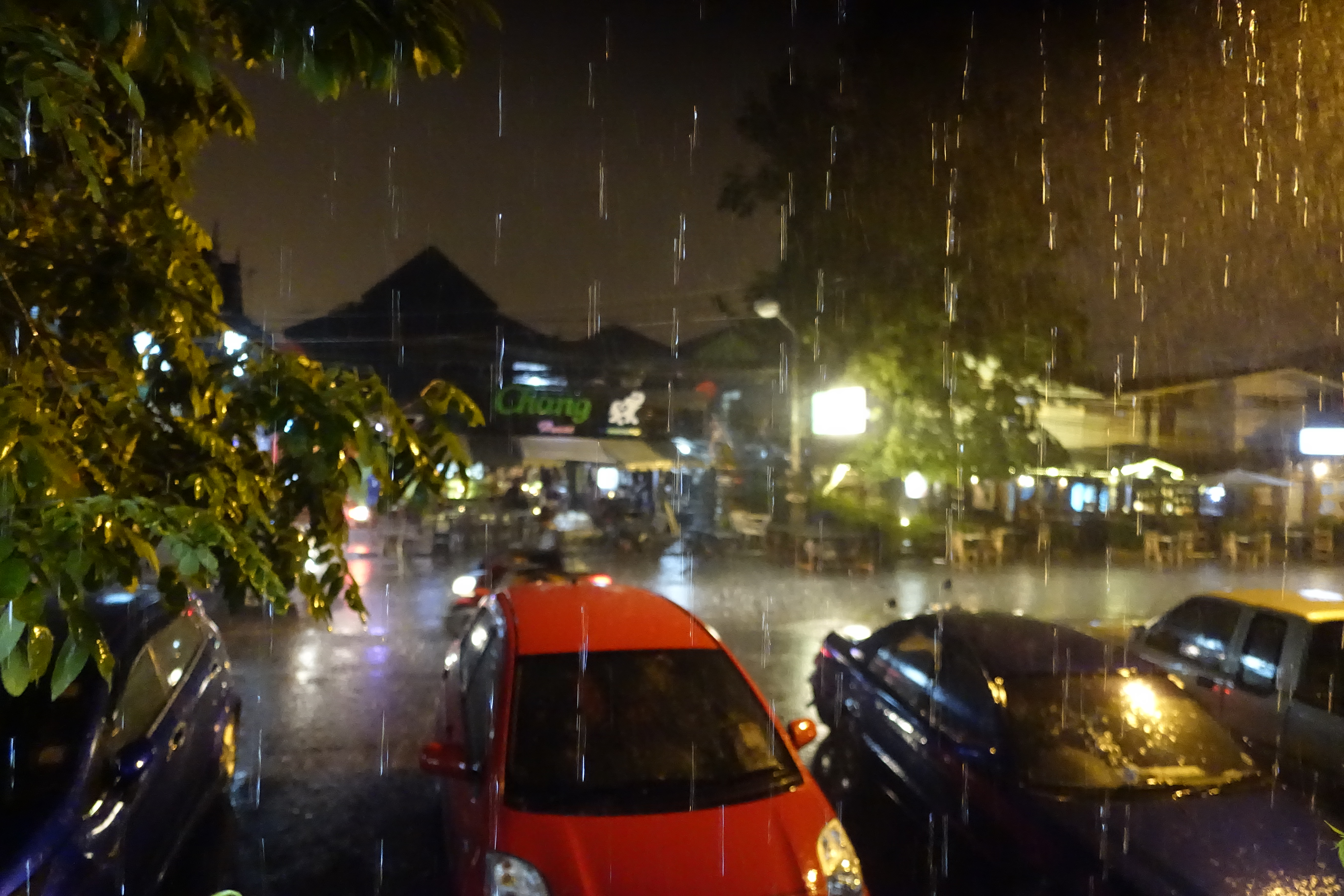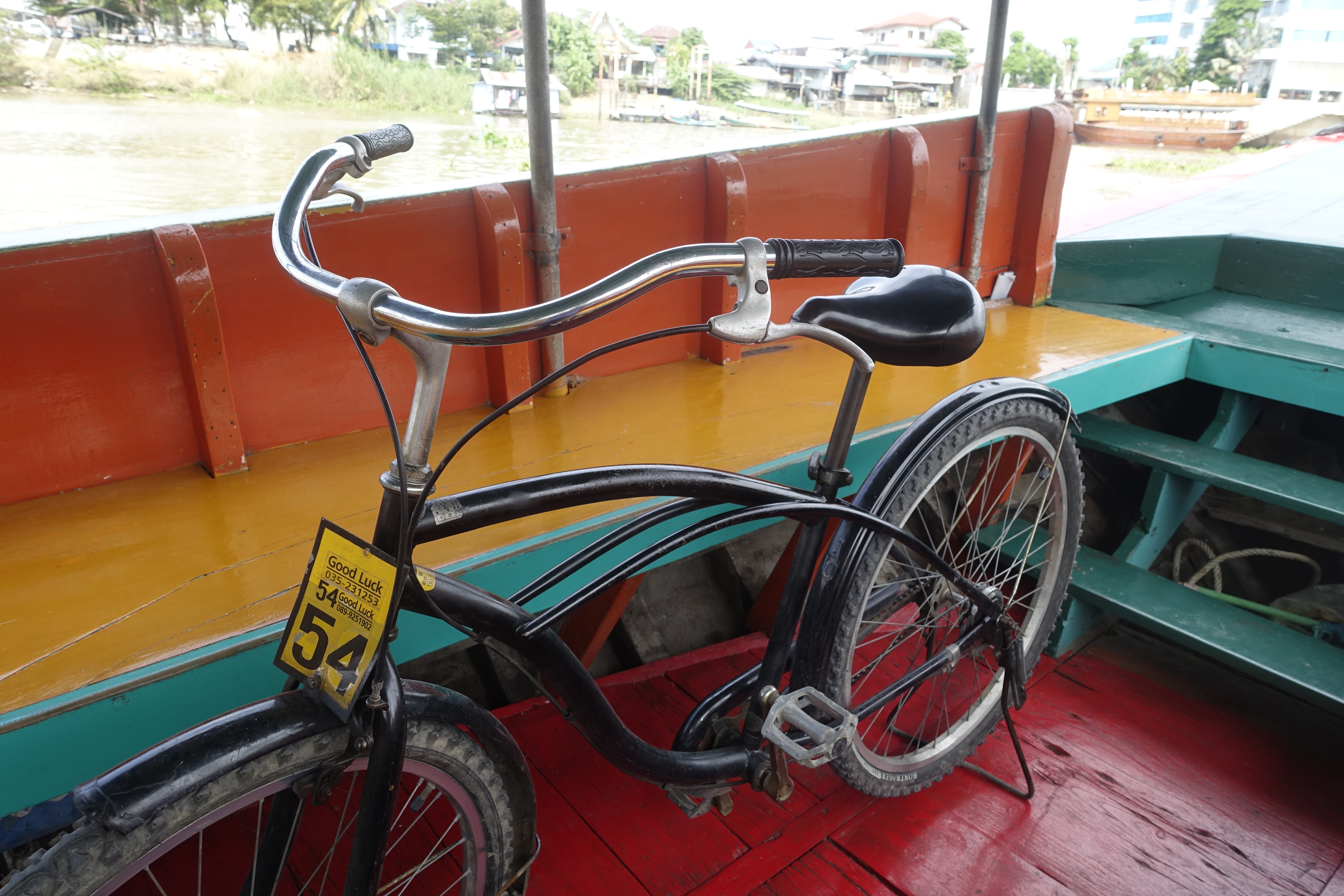Chiang Mai, Thailand
I have been trying and failing to find the thoughtful thing to say, so never mind. I will simply fill you in on where I’ve been, where I’m going, and what it has been like so far.
Little towns up the middle
After Ayutthaya, which a friend drove me to from Bangkok, I moved on to Lopburi, a small city known for its troop of monkeys who dominate a temple near the train station and wreak havoc over a small part of the town. I took the train, strapping on the full pack for the first time, though I could probably just have easily rolled it (it has wheels). Riding the train in Thailand is easy: stationmasters tell you which train to get on, and conductors tell you where to get off. I made friends with some Chinese exchange students during the ride.
In Lopburi, I learned what it is like to have a monkey on your back, and it’s not good. The monkeys were rather terrifying, and I made friends with a Belgian couple at the temple who were doing the same thing as me: trying to take pictures while avoiding actual monkey contact. We ended up inside the temple, which has cage doors to keep the monkeys out, when a sudden downpour trapped us. We then wandered the town in the rain and went back to the only really social guesthouse in town, NooM, where I was staying. There I met a Ukrainian-American who’d been teaching in Korea for four years, and his Chinese girlfriend, and also an English guy covered in tattoos who is about my age, made a pilgrimage to Seattle when he was 17, and actually knows the band Hater.
Daniel, the Englishman, turned out to be good company, though he’s a bit of a loner and sorting out some personal tragedies. He’d been in Dharamsala for the past several months, so we shared a lot of India horror stories. We spent the day together in Lopburi, and then took the same train (different cars) up to Phitsanulok, which is where you transfer if you’re going to Sukhothai, a major site for Thai ruins. Despite going from train to tuk-tuk to bus to tuk-tuk again, the whole process was fairly smooth. No one seemed interested in ripping us off, and people were helpful in getting us to where we needed to be.
Sukhothai was a delight. I stayed in a gorgeous hotel (Daniel did a cheaper guesthouse), and the ruins were spectacular, and we spent the day riding around them on bikes. It was no surprise that the site was well maintained and impressive. What was surprising were our interactions with the locals. In front of Wat Si Chum, we stopped for drink coconuts. What could have been a spot of tourist hassle was anything but. The old woman with the gold teeth who sold us the coconuts, at a fair price, was thrilled to speak to us and kept asking if we understood her English, which I mostly did. She ushered us to a shaded platform to sit on, and then cut our coconuts open and scooped out the meat for us. Then I mosied over to a display of paintings and other art by a local artist, an effeminate guy who said he did his art “with a friend,” a ladyboy who later showed up on a motorcycle. I bought a painting at the reasonable price of B400, a half Buddha painted on cloth.
Later, after a long ride around the national park section of the area, all forest and crumbling wats, we headed to a pack of mostly identical little eateries near the park entrance. We picked one more or less at random, and it turned out to be a winner: the cute mom waitress was flirty and funny, and her mother or mother-in-law was hilarious, coming over to box and arm wrestle with me. And the iced coffee and noodles were great, and so was the hot coffee Daniel had. What could have been boring, shitty in-the-park food was great and fun. And then later, outside the park, we ate at the place next to Daniel’s guesthouse, and I had the local style of noodles, with palm sugar, and some fried pumpkin, and that too was delicious.
There was also the charm of bumping into the same little set of fellow travelers. On the bus we found a French girl we’d met the night before (I saw her again in Chiang Mai), and then found the Belgian couple at Daniel’s guesthouse, and later I spotted the Dutch software engineer who’d come and chatted with us back in Lopburi.
Chiang Mai surprise
I had the thought that I was already finding Thailand charming, and I hadn’t yet been to any of the bits of it people really love: the beaches, the islands, Chiang Mai, Pai. I had high hopes for Chiang Mai, where I would meet an old friend from Google. Instead, it has turned out to be the first place in Thailand I don’t much like.
That needs to be qualified a bit. It’s still pleasant, with lots of beautiful temples and good food and no major hassles. But there’s something about the expat culture here — a colonial vibe, perhaps, and maybe too many white men who’ve come searching for a place that they can live their lives without the rigors of feminism — that rubs me the wrong way. And something too about the sheer scale of the tourism here, the way that the old city is dominated by backpackers and other travelers. There were plenty of us in Bangkok too, but Bangkok is too big to be about us. Here the farang come and settle and buy property and own bars, and there’s something off. It’s hard to put my finger on it.
Loneliness and uncertainty
I have also come face to face with loneliness here. Daniel went his way, and I was on my own in a biggish city. I spent some time with my old Google friend, and with the French girl and her little French group, and I made a two-hour friendship with a Canadian woman and had a random dinner with some Japanese women I met while waiting for a table at a restaurant. But I’ve come to realize that once I’m on my own again, I get nervous. I get weird. I get depressed.
I have also come up against my fear of discomfort and uncertainty. I worry about picking the right hotel, booking ahead, making the right plans.
I don’t want to overstate any of this. I am on an extended vacation in a beautiful place. The other day I was feeling lousy, but then I went out to walk around, and I watched a monk giving hammer dulcimer lessons to kids, and then I passed a barbecue in the park and some random guy insisted on giving me a hunk of fried chicken. It was delicious. Thailand is like that.
But part of what I’m doing here is getting to know myself. And if you want to bring out your neuroses, spending some time alone on the road will usually do the trick. For me, it’s fear of discomfort and fear of loneliness.
For the loneliness, I’ve started meditating again. The feeling comes in an intense blast, but it usually passes. The meditation helps with recognizing that it will pass, not getting caught up in it.
I am also going to Pai — and for the fear of discomfort and uncertainty, I’m going without any hotel booked. I will get there and I will look around. And I will be OK.
I think.
I am also hoping that Pai will be a good place to meet people and get into some activities, like rafting or trekking. I am hoping that it will not be a tourist nightmare.
(And there’s that fear again.)
See you soon!



